
Kirundo: The Tranquil Heart of Burundi
Nestled in the northern part of Burundi, Kirundo is a charming town that offers a serene escape from the hustle and bustle of city life. Known for its beautiful landscapes and welcoming locals, Kirundo is a hidden gem waiting to be discovered. The town is surrounded by picturesque hills and lush greenery, making it a perfect destination for nature lovers and adventure seekers alike. One of the main attractions in Kirundo is the trio of stunning lakes: Lake Cohoha, Lake Rwihinda, and Lake Rweru. These lakes are not only breathtakingly beautiful but also home to a variety of bird species, making them a paradise for bird watchers. Visitors can enjoy boat rides on the lakes, go fishing, or simply relax by the water's edge and soak in the tranquil atmosphere. Kirundo also offers a glimpse into the rich cultural heritage of Burundi. The local markets are bustling with activity and provide an opportunity to experience the vibrant local culture. Here, you can find handmade crafts, traditional clothing, and a variety of local produce. Don't miss the chance to interact with the friendly locals and learn more about their way of life. For those interested in history, a visit to the nearby ruins of Gihanga is a must. These ancient ruins date back to the early kingdoms of Burundi and offer a fascinating insight into the region's past. Exploring the ruins, you can almost feel the presence of the ancient Burundian kings and the history that shaped this beautiful land.
Local tips in Kirundo
- Visit the lakes early in the morning for the best bird-watching experience.
- Take a local guide to explore the ruins of Gihanga for a deeper understanding of the history.
- Try the local fish dishes in the markets for an authentic culinary experience.
- Bring cash as credit card facilities may not be widely available.
- Learn a few basic Kirundi phrases to enhance your interaction with the locals.
Kirundo: The Tranquil Heart of Burundi
Nestled in the northern part of Burundi, Kirundo is a charming town that offers a serene escape from the hustle and bustle of city life. Known for its beautiful landscapes and welcoming locals, Kirundo is a hidden gem waiting to be discovered. The town is surrounded by picturesque hills and lush greenery, making it a perfect destination for nature lovers and adventure seekers alike. One of the main attractions in Kirundo is the trio of stunning lakes: Lake Cohoha, Lake Rwihinda, and Lake Rweru. These lakes are not only breathtakingly beautiful but also home to a variety of bird species, making them a paradise for bird watchers. Visitors can enjoy boat rides on the lakes, go fishing, or simply relax by the water's edge and soak in the tranquil atmosphere. Kirundo also offers a glimpse into the rich cultural heritage of Burundi. The local markets are bustling with activity and provide an opportunity to experience the vibrant local culture. Here, you can find handmade crafts, traditional clothing, and a variety of local produce. Don't miss the chance to interact with the friendly locals and learn more about their way of life. For those interested in history, a visit to the nearby ruins of Gihanga is a must. These ancient ruins date back to the early kingdoms of Burundi and offer a fascinating insight into the region's past. Exploring the ruins, you can almost feel the presence of the ancient Burundian kings and the history that shaped this beautiful land.
When is the best time to go to Kirundo?
Iconic landmarks you can’t miss
Bujumbura Zoo
Explore the diverse wildlife of Burundi at Bujumbura Zoo, a family-friendly destination filled with exotic and local species in a natural setting.
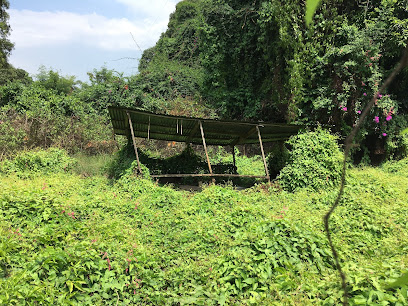
Chutes de la Karera Falls
Experience the awe-inspiring beauty of Chutes de la Karera Falls, a must-visit natural attraction in Burundi, perfect for nature lovers and adventure seekers.
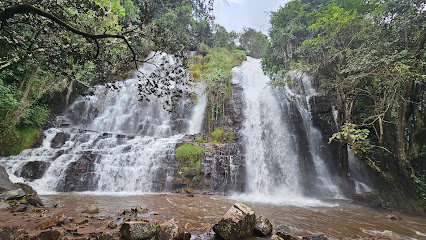
Livingston-Stanley Monument
Explore the Livingston-Stanley Monument in Ramba, a stunning tribute to the legendary explorers and a serene spot for reflection and cultural immersion.
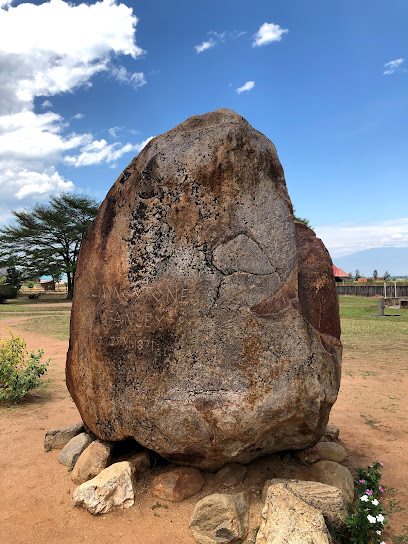
Gishora Drum Sanctuary
Immerse yourself in the vibrant cultural heritage of Burundi at the Gishora Drum Sanctuary, a UNESCO World Heritage Site dedicated to traditional drumming.
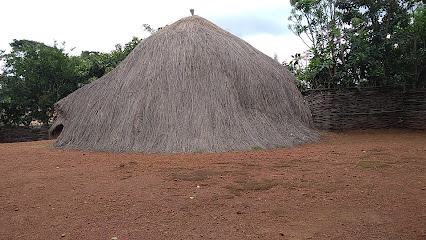
Kibira National Park
Explore the lush landscapes and diverse wildlife of Kibira National Park, a hidden gem in Burundi that offers adventure and tranquility for every nature lover.
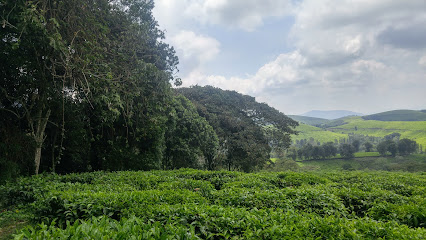
Ruvubu National Park
Explore Ruvubu National Park: A Biodiversity Haven in Burundi with Majestic Landscapes and Unique Wildlife Encounters.
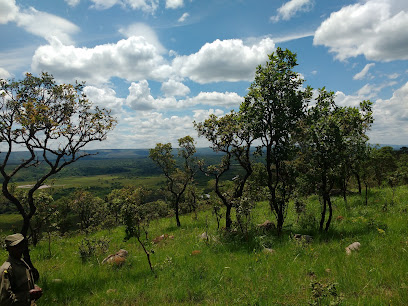
Rusizi National Park
Discover the breathtaking landscapes and diverse wildlife of Rusizi National Park, a hidden gem in Burundi where adventure meets tranquility.
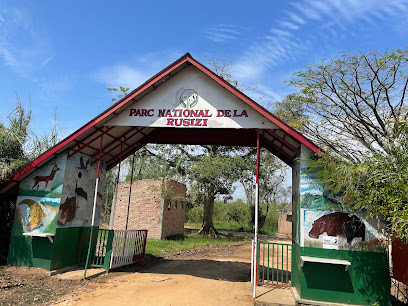
Regina Mundi Cathedral
Explore the architectural beauty and spiritual tranquility of Regina Mundi Cathedral in Bujumbura, an essential stop for any traveler.
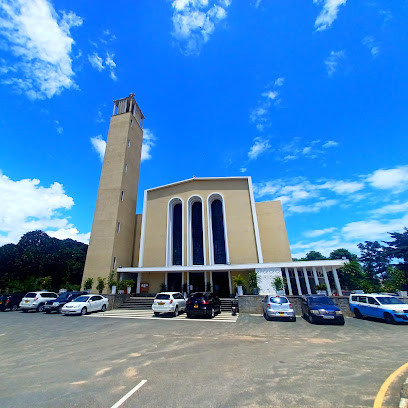
Lycée KIRUNDO
Explore Lycée KIRUNDO in Bujumbura, a vibrant cultural center showcasing Burundian education, arts, and community spirit.

Jinli Kirundo
Experience the spirit of adventure at Jinli Kirundo, a motorcycle repair shop where travelers connect with the local biking culture in Kavogero.

Unmissable attractions to see
Ethnographic Museum
Discover Rwanda's cultural heart at the Ethnographic Museum in Butare, showcasing traditions, history, and artistry in a captivating setting.
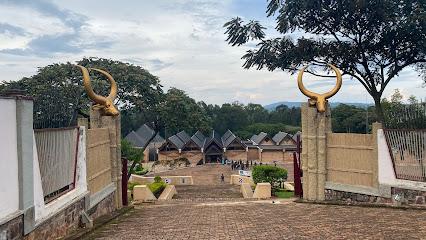
King's Palace Museum
Explore the royal legacy of Rwanda at the King's Palace Museum in Nyanza, a cultural treasure showcasing the rich history and heritage of the Rwandan monarchy.
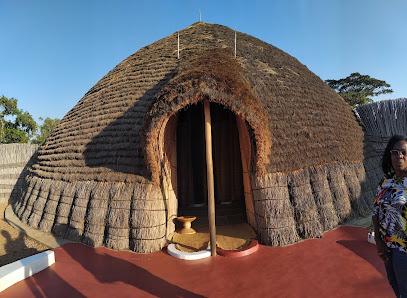
Nyamata Genocide Memorial Site
Explore the Nyamata Genocide Memorial Site in Rwanda, a poignant museum dedicated to remembrance, education, and the resilience of the human spirit.
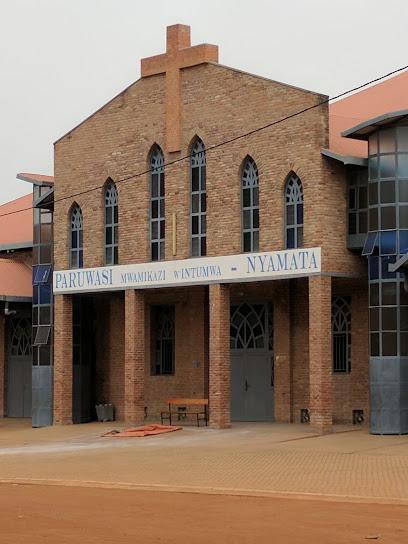
Kwigira Museum
Explore Rwanda's journey of resilience at Kwigira Museum in Nyanza, showcasing the nation's spirit of self-reliance and unity.
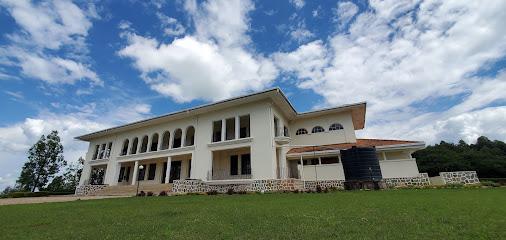
Rwanda African Art Museum
Explore the vibrant cultural heritage and artistic expressions at Rwanda African Art Museum in Nyanza, a must-visit destination for art lovers.

Nyanza Tourism Information Centre
Explore Rwanda's cultural heritage and natural beauty at the Nyanza Tourism Information Centre in Rukali, your gateway to unforgettable adventures.
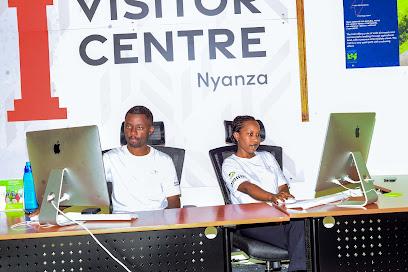
Destination Nyanza
Explore Nyanza's rich heritage and stunning landscapes with expert advice from the Tourist Information Center.

Essential places to dine
Harrys Grill House
Discover the vibrant tastes of Bujumbura at Harry's Grill House – where barbecue dreams come true!
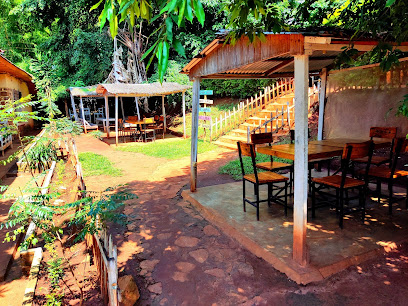
Maquis
Experience authentic Burundian cuisine at Maquis in Bujumbura – where every dish is a journey through local flavors.
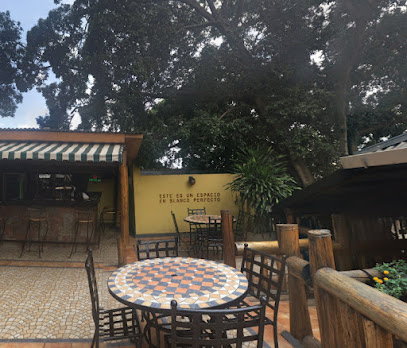
Pasta comedia
Discover authentic Italian cuisine at Pasta Comedia in Bujumbura – where every dish tells a story of culinary passion.
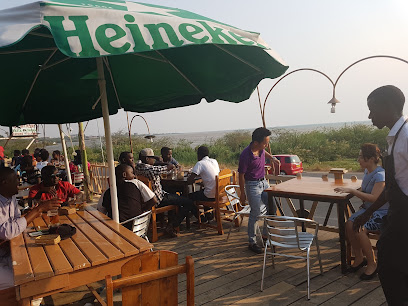
Belvedere Restaurant
Experience the best of Burundian cuisine with stunning views at Belvedere Restaurant in Bujumbura.
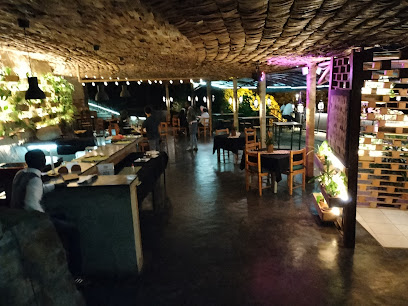
Restaurant Chez Orphée
Experience authentic Burundian flavors at Restaurant Chez Orphée in Bujumbura - where culinary tradition meets modern dining.
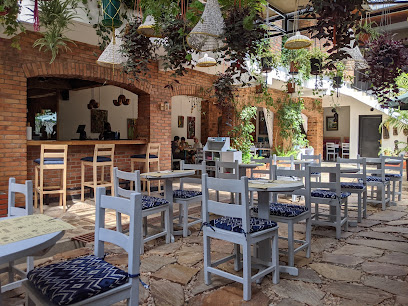
KEZAMIA Restaurant
Experience the essence of Burundian hospitality at KEZAMIA Restaurant – where delicious cuisine meets lush surroundings.
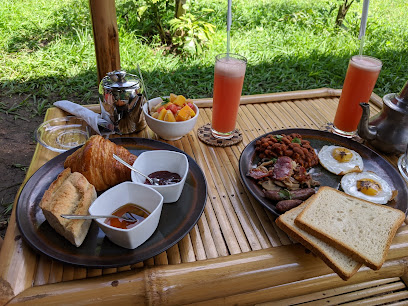
Restaurant Oasis
Experience Burundian flavors at Restaurant Oasis - where local ingredients meet international cuisine in a cozy setting.
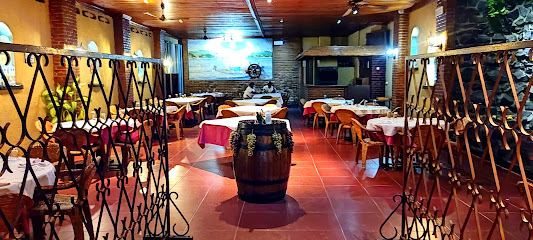
Restaurant Tanganyika
Discover authentic Burundian flavors amidst breathtaking views at Restaurant Tanganyika by Lake Tanganyika.
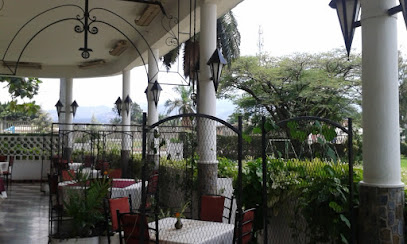
Asian Restaurant
Savor authentic Indian and Pakistani dishes along with Pan-Asian delights in Bujumbura's vibrant dining scene.
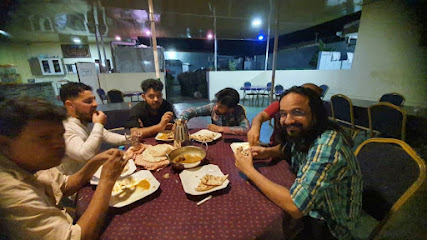
Atrium Restaurant
Discover Atrium Restaurant: A fine dining experience blending local flavors with stunning views in Bujumbura's vibrant atmosphere.
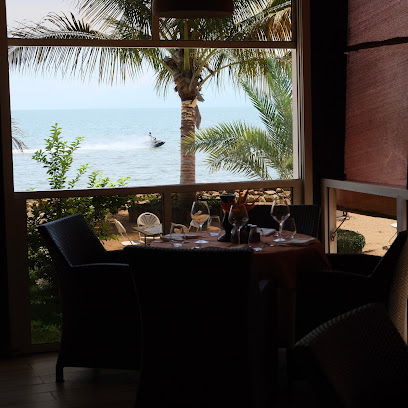
Cup Line
Experience authentic Burundian flavors at Cup Line, a cozy restaurant in Bujumbura offering delicious local and international cuisine.
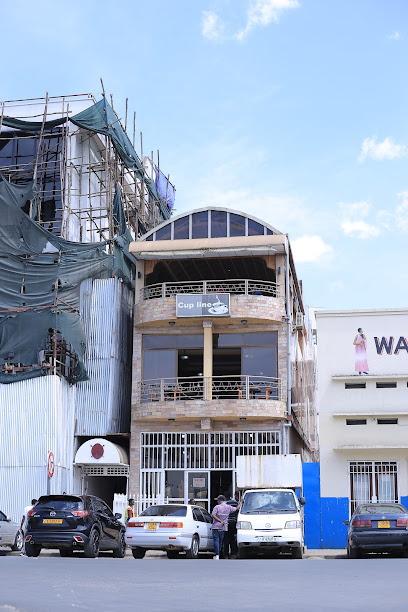
Ku Kigabiro Event
Experience authentic Burundian cuisine at Ku Kigabiro Event in Bujumbura – where every meal tells a story.
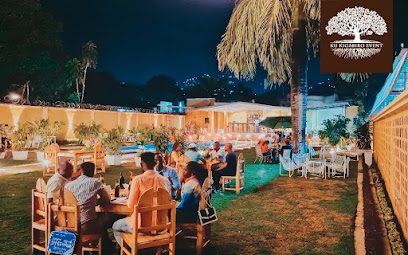
La Coupe Restaurant
Experience authentic Burundian cuisine at La Coupe Restaurant in Bujumbura—where flavors meet hospitality.
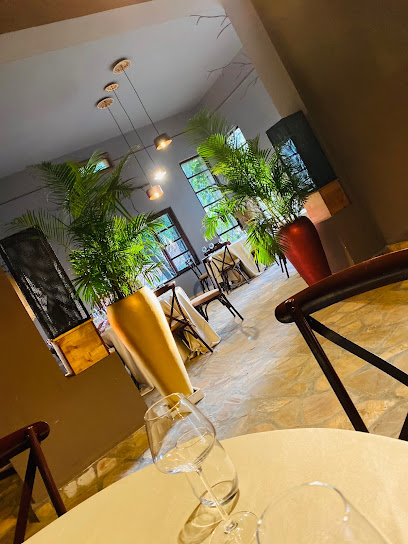
Food palace
Experience the authentic flavors of Burundi at Food Palace in Kayanza – where every meal tells a story.
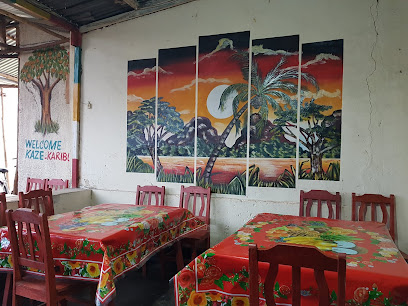
LA CASA RESORT HOTEL
Discover authentic Burundian flavors at La Casa Resort Hotel in Muyinga – where every dish tells a story.

Markets, malls and hidden boutiques
Au Bon Prix
Experience the taste of Burundi at Au Bon Prix, your go-to grocery store in Bujumbura for local and international delights.
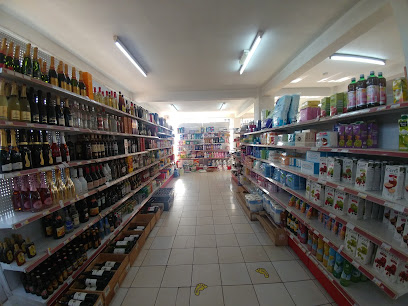
Home World Supermarket
Explore the flavors of Bujumbura at Home World Supermarket, your gateway to local and international delicacies.
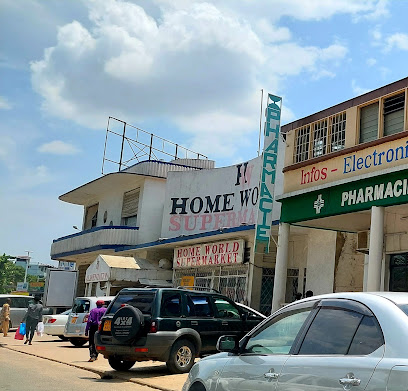
Marché de MASANGANZIRA
Discover local treasures and vibrant culture at Marché de MASANGANZIRA, the heart of shopping in Kiremba, Burundi.
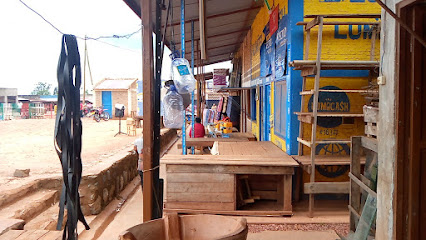
Marché de Kinindo
Explore the lively Marché de Kinindo, a vibrant market in Bujumbura showcasing local crafts, fresh produce, and authentic Burundian cuisine.
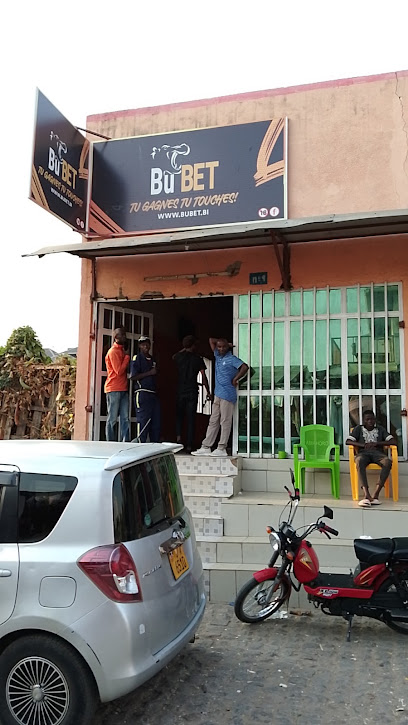
La Copabu
Discover unique Rwandan handicrafts and antiques at La Copabu, a vibrant cultural hub in Butare that showcases local artistry and craftsmanship.
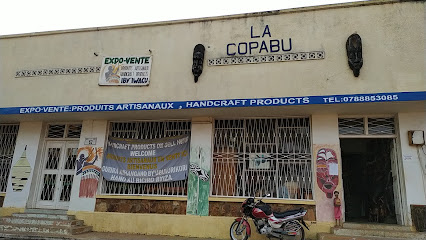
Kinindo Supermarket
Discover local flavors and unique crafts at Kinindo Supermarket, a vibrant general store in Bujumbura, perfect for tourists seeking authentic experiences.
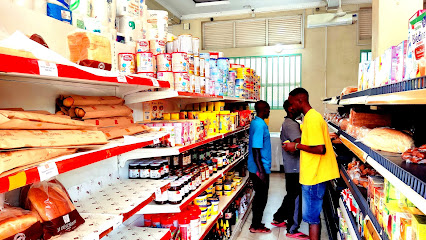
Welthungerhilfe Kirundo
Explore Kirundo with confidence by connecting with the latest technology at Welthungerhilfe Kirundo, your local cell phone store.
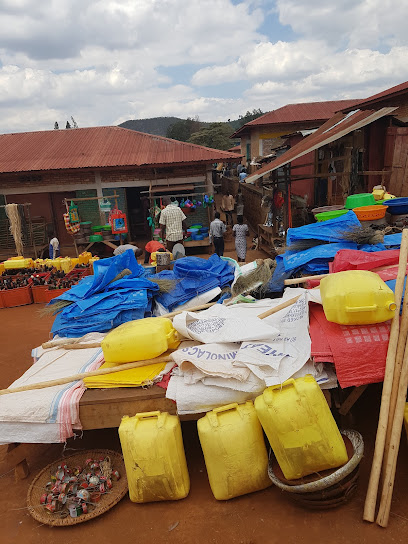
Juma NAYABAGABO
Discover the charm of Juma NAYABAGABO in Kabari, where local craftsmanship meets essential home goods for every traveler.
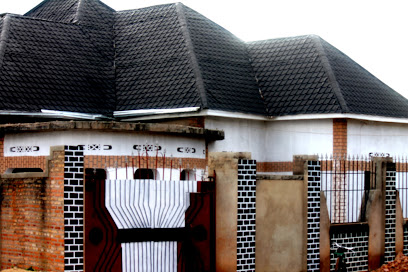
Marché de Gikomero
Discover the cultural heartbeat of Mbasi at Marché de Gikomero, where vibrant shopping meets authentic Rwandan cuisine.

Mugisha Shop
Explore Mugisha Shop in Bujumbura for a unique selection of local furniture and crafts, perfect for souvenirs and home decor.

Kiyera Burundi
Explore Kiyera Boutique in Bujumbura for unique handcrafted goods that embody the rich culture and artistry of Burundi.

Kilakitu
Discover Kilakitu: A vibrant shopping mall in Bujumbura offering diverse retail, delicious dining, and exciting entertainment options.

Our Amazing Seasonal Improvement
Explore Rango Market in Huye District, a boutique hub of local crafts, fresh produce, and vibrant Rwandan culture.
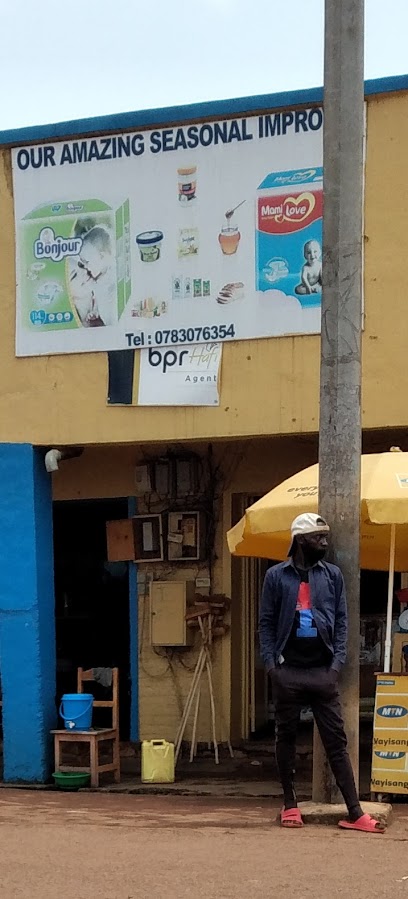
BYOSE SHOP
Explore BYOSE SHOP in Butare for a unique shopping experience featuring local crafts, delicacies, and everyday essentials amidst Rwandan culture.
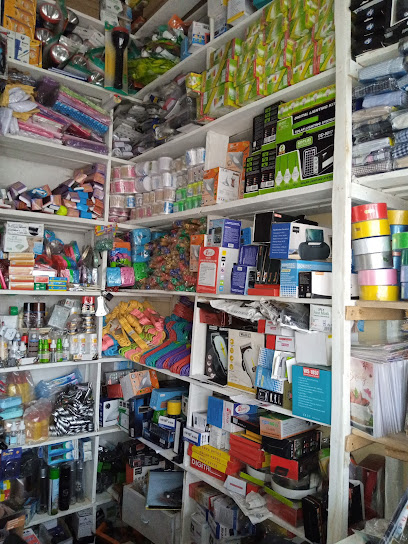
krysbel store
Discover unique fashion pieces at Krysbel Store in Bujumbura, where local culture meets modern style in a vibrant shopping experience.
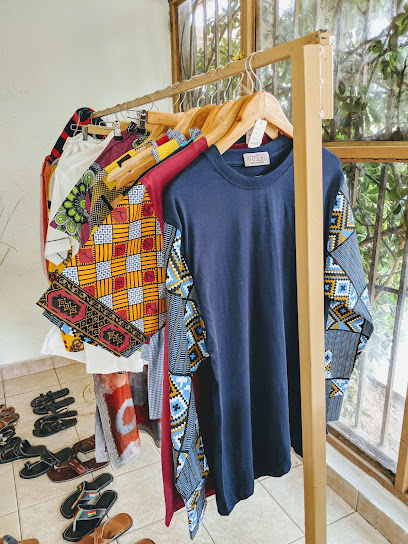
Essential bars & hidden hideouts
BAR FACEBOOK
Discover the lively ambiance of Bar Facebook, a vibrant bar in Vumbi that offers a perfect blend of local culture and social experience.

mukenke
Discover the authentic flavors of Burundi at Mukenke Restaurant in Kirundo, where local cuisine meets warm hospitality.
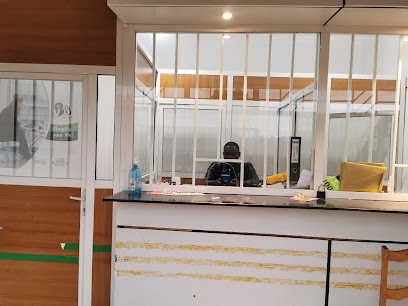
TARASISI HÔTEL
Experience the heart of Burundi at Tarasisi Hôtel, a charming bar in Kirundo, offering local flavors and a cozy atmosphere for every traveler.

BAR CHEZ VIOLETTE
Discover the heart of Kirundo at Bar Chez Violette, a lively bar offering local drinks and a warm atmosphere to unwind and connect.

Ku mpene
Experience the vibrant atmosphere and refreshing drinks at Ku mpene, a must-visit bar in Gihosha that embodies local culture and community.

BAR IWACU 2
Discover the vibrant nightlife of Gasura at Bar Iwacu 2, a local hotspot for tasty drinks and authentic social experiences.

Bar des idées
Experience the vibrant nightlife of Gasura at Bar des idées, where local culture meets a cozy atmosphere and diverse drink options.

Resto Bar KANADA
Experience vibrant nightlife and local cuisine at Resto Bar KANADA in Kinini, the perfect spot for relaxation and entertainment.

BAR KUMUYAGA CHEZ COMPTABLE
Bar Kumuyaga Chez Comptable - Your Go-To Bar in Kigina for Refreshing Drinks and Vibrant Atmosphere.

Kungoro
Experience the vibrant nightlife of Congori at Kungoro, a lively bar offering local drinks, music, and a welcoming atmosphere.

Gita Roots
Discover the vibrant atmosphere and local flavors at Gita Roots, a premier bar in Rugari, perfect for tourists seeking authentic experiences.

Croixx rouge
Experience the vibrant local culture at Croixx Rouge, a cozy bar in Kwibuye offering unique beverages and a friendly atmosphere.

CHEZ ONESIME
Discover local flavors and a vibrant atmosphere at Chez Onesime, the heart of Kigina's nightlife scene.

Croix rouge
Discover the culinary delights of Croix Rouge, a grill restaurant in Kirundo offering a taste of authentic Burundian cuisine in a welcoming atmosphere.
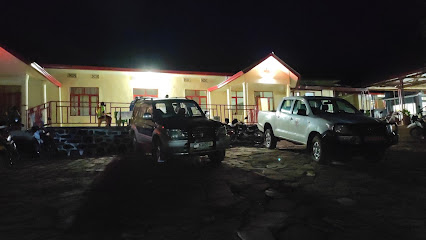
Local Phrases
-
- HelloAmakuru
[ah-mah-koo-roo] - GoodbyeKwaheri
[kwa-heh-ree] - YesEgo
[eh-go] - NoOya
[oh-yah] - Please/You're welcomeKubaza
[koo-bah-zah] - Thank youMurakoze
[moo-rah-koh-zay] - Excuse me/SorryUramutse
[oo-rah-moot-say] - How are you?Amakuru yawe?
[ah-mah-koo-roo yah-way] - Fine. And you?Ni meza. Wewe?
[nee meh-zah. way-way] - Do you speak English?Mwahamagari ivy'igifaransa?
[mwah-ha-mah-gah-ree ee-vee-ee-gi-fah-rahn-sah] - I don't understandNtaho nemerewe
[n-tah-ho neh-meh-reh-way]
- HelloAmakuru
-
- I'd like to see the menu, pleaseNifise ikimenyo, kubaza
[nee-fee-say ee-kee-men-yo, koo-bah-zah] - I don't eat meatNtiyamenya ibishaza
[n-tee-yah-mehn-yah ee-bee-sha-zah] - Cheers!Amayi
[ah-my-ee] - I would like to pay, pleaseNifise gukodesha, kubaza
[nee-fee-say goo-koh-deh-sha, koo-bah-zah]
- I'd like to see the menu, pleaseNifise ikimenyo, kubaza
-
- Help!Ubwenge!
[oo-bwen-geh] - Go away!Jya kuri byawe!
[j-ya koo-ree bee-yah-way] - Call the Police!Gukura Polisi!
[goo-koo-rah po-lee-see] - Call a doctor!Gukura umurongo!
[goo-koo-rah oo-moo-rohn-goh] - I'm lostNtashoboye gukora
[n-tah-sho-boy-eh goo-koh-rah] - I'm illNdagutegereje
[n-dah-goo-teh-geh-reh-jay]
- Help!Ubwenge!
-
- I'd like to buy...Nifise kugura...
[nee-fee-say koo-goo-rah] - I'm just lookingNjye nsanga
[n-jyeh n-sah-ngah] - How much is it?Ni iki igiciro?
[nee ee-kee ee-gee-chee-ro] - That's too expensiveIyo ni niniye
[ee-yoh nee nee-nee-ye] - Can you lower the price?Wibaza gusubiza igiciro?
[wee-bah-zah goo-soo-bee-zah ee-gee-chee-ro]
- I'd like to buy...Nifise kugura...
-
- What time is it?Ni ejo saahe?
[nee eh-joh sah-ah-hey] - It's one o'clockNi saa ya kane
[nee sah-yah kah-nay] - Half past (10)Icyumweru iri kumwe na murandasi
[ee-choo-mweh-roo ee-ree koo-mweh nah moo-rah-ndah-see] - MorningUmugoroba
[oo-moo-goh-roh-bah] - AfternoonIgisibo
[ee-gee-see-boh] - EveningUmugoraneza
[oo-moo-goh-rah-neh-zah] - YesterdayEjo
[eh-joh] - TodayEjo
[eh-joh] - TomorrowEjo
[eh-joh] - 1Rimwe
[ree-mweh] - 2Kabiri
[kah-bee-ree] - 3Gatatu
[gah-tah-too] - 4Kane
[kah-nay] - 5Gatanu
[gah-tah-noo] - 6Gatandatu
[gah-tahn-dah-too] - 7Kumwe
[koo-mweh] - 8Kigana
[kee-gah-nah] - 9Icyenda
[ee-chee-yen-dah] - 10Icyumweru
[ee-choo-mweh-roo]
- What time is it?Ni ejo saahe?
-
- Where's a/the...?Aho ari...?
[ah-ho ah-ree] - What's the address?Iki ni aho?
[ee-kee nee ah-ho] - Can you show me (on the map)?Wibaza kundura (kuri murugo)?
[wee-bah-zah kun-doo-rah koo-ree moo-roo-go] - When's the next (bus)?Iki kigiciro kiri kumwe?
[ee-kee kee-gee-chee-ro kee-ree koo-mweh] - A ticket (to ....)Igitike (kuri ....)
[ee-gee-tee-kay koo-ree]
- Where's a/the...?Aho ari...?
History of Kirundo
-
The region now known as Kirundo has been inhabited for centuries by the Hutu, Tutsi, and Twa ethnic groups. The area’s fertile land and strategic location made it a hub for agriculture and trade among these communities. Oral traditions and archaeological findings suggest that the Kirundo area was an important site for early Burundian kingdoms, serving as a cultural and economic center long before the arrival of European colonizers.
-
In the late 19th century, Kirundo became part of German East Africa. The Germans established administrative posts and began exploiting the region's resources. They introduced new agricultural techniques and crops, which had both positive and negative impacts on the local population and environment. The German colonial rule was characterized by a mix of modernization efforts and harsh treatment of the indigenous people.
-
Following World War I, the League of Nations mandated Burundi to Belgium. Under Belgian rule, Kirundo saw significant infrastructural development, including roads, schools, and healthcare facilities. However, the Belgian colonial administration also deepened ethnic divisions by implementing policies that favored the Tutsi minority over the Hutu majority. This period laid the groundwork for future ethnic tensions that would affect the region.
-
Burundi gained independence from Belgium on July 1, 1962. In the years following independence, Kirundo, like much of the country, experienced political instability and ethnic conflict. The assassination of Prime Minister Louis Rwagasore, a key independence leader, created a power vacuum that led to frequent changes in government and episodes of violence between Hutu and Tutsi factions.
-
From 1993 to 2005, Burundi was engulfed in a civil war that had devastating effects on the population. Kirundo was not spared from the violence and suffered significant social and economic disruption. Many residents were displaced, and the local infrastructure was severely damaged. The war left deep scars on the community, but it also highlighted the resilience and solidarity of Kirundo’s people.
-
Since the end of the civil war, Kirundo has been on a path to recovery. Efforts have been made to rebuild infrastructure, improve education and healthcare, and promote economic development. International aid and local initiatives have played crucial roles in these efforts. The region is now focusing on sustainable development, with an emphasis on agriculture, tourism, and cultural preservation.
-
Kirundo is rich in cultural heritage, with traditions that have been passed down through generations. Festivals, dances, and ceremonies are integral parts of community life. The region is also known for its beautiful landscapes, including Lake Rwihinda and Lake Cohoha, which attract both domestic and international tourists. Today, Kirundo represents a blend of historical legacy and modern aspirations, offering a unique glimpse into Burundi’s past and future.
Kirundo Essentials
-
Kirundo is located in northern Burundi, near the border with Rwanda. The nearest international airport is Bujumbura International Airport, approximately 200 kilometers away. From Bujumbura, you can take a bus or hire a taxi to reach Kirundo. The journey typically takes around 4 to 5 hours by road. Alternatively, you can hire a private car for a more comfortable and direct route.
-
Kirundo is a small town, and many of its attractions are within walking distance. For longer trips, local taxis and motorbike taxis (boda-bodas) are readily available and relatively inexpensive. Public minibuses operate within the town and connect to nearby villages. Renting a car is an option, but be prepared for varying road conditions.
-
The official currency in Burundi is the Burundian Franc (BIF). Credit cards are accepted in some hotels and restaurants, but it is advisable to carry cash, especially in smaller establishments and rural areas. ATMs are available in Kirundo, but it is wise to withdraw sufficient cash in Bujumbura before traveling to ensure you have enough funds.
-
Kirundo is generally a safe destination for tourists. However, like any travel destination, it is advisable to take standard precautions. Avoid walking alone at night in unfamiliar areas and keep an eye on your belongings in crowded places. While Kirundo is relatively safe, it's always best to stay vigilant and aware of your surroundings.
-
In case of emergency, dial 112 for immediate assistance. The local police station and medical facilities are available in Kirundo. It is recommended to have travel insurance that covers medical emergencies. For minor health issues, there are pharmacies in the town where you can purchase over-the-counter medications.
-
Fashion: Do dress modestly, especially when visiting religious or cultural sites. Avoid wearing revealing clothing. Religion: Do respect local customs and traditions. Always show respect when visiting places of worship. Public Transport: Do be respectful and give up your seat to elderly passengers. Don't eat or drink on public transport. Greetings: Do greet people with a handshake and a smile. A slight bow of the head is also a sign of respect. Eating & Drinking: Do try local delicacies and accept food offerings graciously. Don't refuse hospitality, as it is considered impolite.
-
To experience Kirundo like a local, visit the local markets where you can buy fresh produce and traditional Burundian goods. Engage with locals, as they are often friendly and willing to share stories about the town's history and culture. Don't miss visiting Lake Rweru and Lake Cohoha, which offer stunning natural beauty and opportunities for bird watching and boating. For a unique experience, participate in local festivals and traditional dances.
Nearby Cities to Kirundo
-
Things To Do in Butare
-
Things To Do in Muyinga
-
Things To Do in Nyamata
-
Things To Do in Ngozi
-
Things To Do in Kayanza
-
Things To Do in Muhanga
-
Things To Do in Kigali
-
Things To Do in Karongi
-
Things To Do in Muramvya
-
Things To Do in Gitega
-
Things To Do in Kibuye
-
Things To Do in Cibitoke
-
Things To Do in Bujumbura
-
Things To Do in Ruhengeri
-
Things To Do in Rubavu







